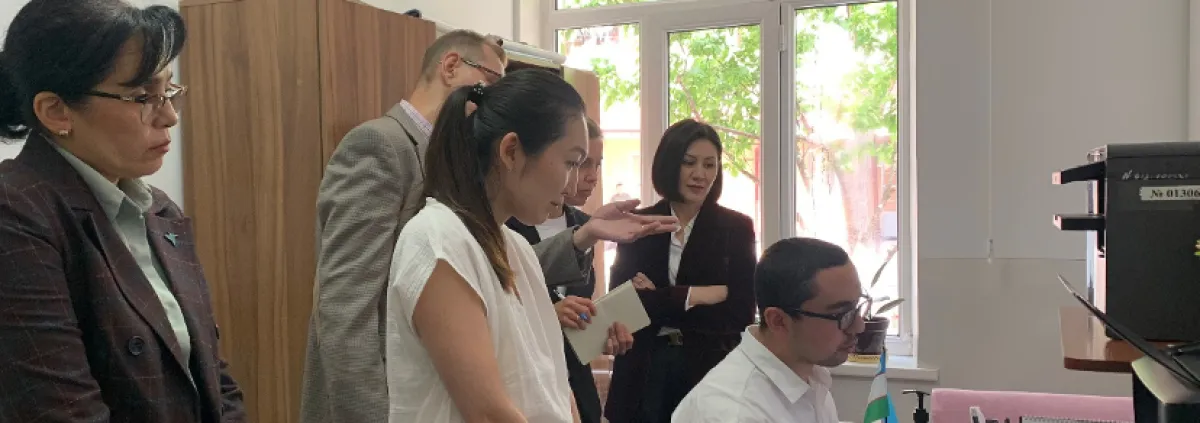From April 25th to May 7th, 2024, a team from the Unit for Surveillance and the Electronic Notification and Information System (DEMIS, Unit 32) at the Robert Koch Institute (RKI), visited their partners in Uzbekistan and Kyrgyzstan to enhance the ongoing collaboration within the German Biosecurity Programme (BioS).
In Uzbekistan, the RKI team was invited to participate in the international scientific and practical conference “Preparedness for Pandemic Challenges: Scientific Aspects and Practical Solutions” commemorating the 90th anniversary of the Committee for Sanitary and Epidemiological Welfare and Public Health of the Republic of Uzbekistan. During this event, they had the opportunity to present the regional activities within the German Biosecurity Programme. This event also provided an invaluable opportunity for networking with both national and international organizations, fostering deeper scientific and professional connections.
Within the scope of the BioS programme, RKI is supporting the planned evaluation of the Uzbek surveillance system for infectious diseases. Thus, most meetings in Uzbekistan focused on technical exchanges with partners for a comprehensive understanding of structure and operating method of the surveillance system for infectious diseases in Uzbekistan and for reaching agreement on key elements of the evaluation. Therefore, the team visited Center of Sanitary and Epidemiological Surveillance (CSES) in Uzbekistan at local and regional levels. These visits provided a broad and complete picture of Uzbekistan's infectious disease surveillance system. Further technical meetings were used for scientific exchange of experiences about a former evaluation of the German surveillance system and enabled agreement on key elements in preparation of a study protocol to evaluate the system in Uzbekistan.
In Kyrgyzstan, discussions with the partners from the Parasitic Diseases Prevention and Surveillance Division of the Department of Disease Prevention and State Sanitary and Epidemiologic Surveillance focused on the progress of ongoing activities in updating regulations and operational procedures, possible areas of scientific cooperation within this process and the next steps for cooperation within the German Biosafety Programme.
In conclusion, the visits to Uzbekistan and Kyrgyzstan significantly strengthened the relationships between the RKI and its regional partners. The engagements represent a critical advancement not only regarding the cooperation within the evaluation activities but also toward successful future cooperation for strengthening of infectious disease surveillance in the countries contributing to the overarching goals of the German Biosecurity Programme.
As a next step and to provide an outlook, within the context of the RIO-program a visit of two project partners from Uzbekistan is planned to proceed with the joint planning of the next steps for the evaluation of the Uzbek surveillance system for infectious diseases.
Picture 1: Official visit to the Committee for Sanitary and Epidemiological Welfare and Public Health of the Republic of Uzbekistan
Picture 2: Presentation of the Uzbek electronic reporting system (IS EMID)
Picture 3: Technical meeting with the partners from Department of Epidemiology and prevention of infectious diseases
Picture 4: Visit to the Department of Disease Prevention and State Sanitary and Epidemiologic Surveillance, Ministry of Health of the Kyrgyz Republic
all picture credits: Dariya Abzulinova, Inessa Markus, Adine Marquis, RKI 2024
Authors: Dariya Abzulinova, Adine Marquis, Inessa Markus (RKI FG 32)

Please log in or sign up to comment.